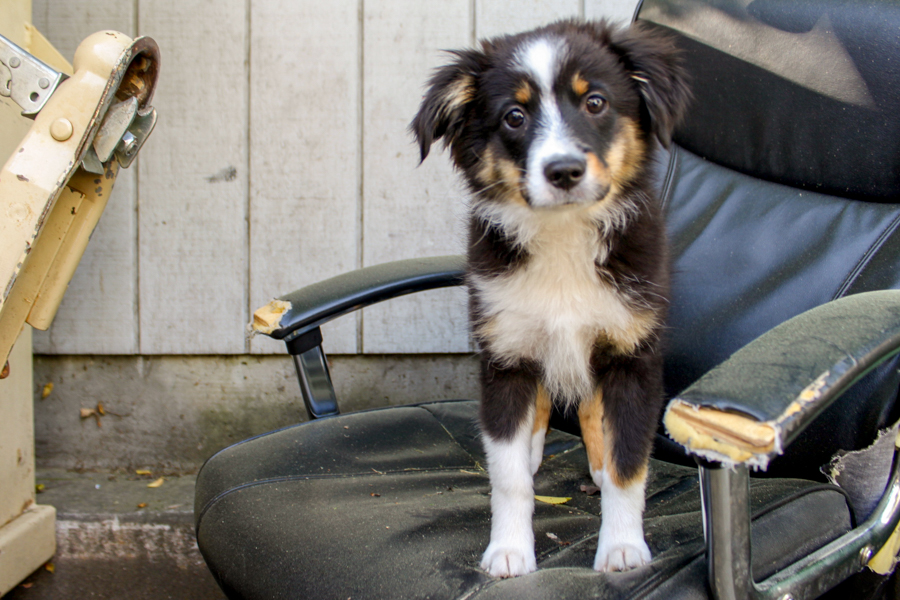
Clinic finally owns facility after 24 years to better provide free proper treatment for the pets of the homeless within the community
On April 19, Mercer Veterinary Clinic for the Pets of the Homeless had a grand opening celebration for its new facility, the Tom Kendall Teaching Clinic.
Named in memory of the clinic’s co-founder Dr. Tom Kendall, the clinic is located in Sacramento near Loaves and Fishes. After 24 years of working in different temporary locations and conditions, such as under canopies and tarps, the clinic’s staff was glad to have a proper and adequate facility.
Veterinarian and board member of Mercer Clinic Dr. Alissa Burnett believes that having a stable facility will make it easier to provide care for the homeless’ pets.
“Mercer Clinic has been operational for the past 20 years, and it is finally permanent and it will be able to serve their clients and their pets adequately,” Burnett said. “It’s [now] much easier for us to practice some quality medicine for these pets.”
Mercer Clinic for the Pets of the Homeless was started in 1992 by UC Davis veterinary students who wanted to help the pets of the homeless. The clinic has evolved to a team of volunteer veterinarians and UC Davis veterinarian students who are headed by Burnett and Dr. Laurel Gershwin. Together, they hold a monthly clinic on the second Saturday of every month.
At their monthly clinic, students from UC Davis are overseen by veterinarians and get hands-on experience examining the pets of the homeless who are brought in by their owners. The pets are provided with treatments and examinations, such as vaccinations; flea, tick and heartworm prevention; and spaying and neutering, all at no cost.
Eileen Samitz, a retired clinical laboratory scientist from the Veterinary Medicine Teaching Hospital and Clinical Microbiology Department, is a coordinator at Mercer clinic and believes that the services provided are essential for the community.
“The services it provides are important and valuable in the prevention of disease with the vaccinations given [and] treatment for parasites, as well as pet population control through the spaying and neutering referrals offered,” Samitz said. “Helping the pets of the homeless in turn helps the greater community, as well as these pets in need. In many cases, these pets are the only family their homeless owners have, so their love, warmth and companionship is even more essential.”
The clinic has never received public funding, so it solely relies on the generosity of the community to continue. Mercer Clinic also receives funds from the annual Holiday Pet Basket program and Winter Coat and Sweater program started by Veterinary Medicine Teaching Hospital co-workers. Gift baskets are made for the pets with gifts and sweaters for the holidays. Additionally, undergraduate members at Davis work at the farmers market, selling pet toys and treats to raise funds.
Fourth-year animal science major Nicole Doan, one of the four coordinators who organizes the undergraduate volunteers, believes that a program like this is important because of the high demand and the value of a pet to a homeless person.
“Many of our clients have put the wellness of their animal before themselves,” Doan said. “Mercer Clinic is a charity project that helps alleviate the monetary costs and mental stress of veterinary care for this population who care deeply for their animals.”
The clinic’s new goal is to complete its surgical suite by buying more equipment in order to make the facility fully operational.
Those interested in donating can visit www.vetmed.ucdavis.edu/clubs/mercer/donation/.
Written by: Demi Caceres – campus@theaggie.org










